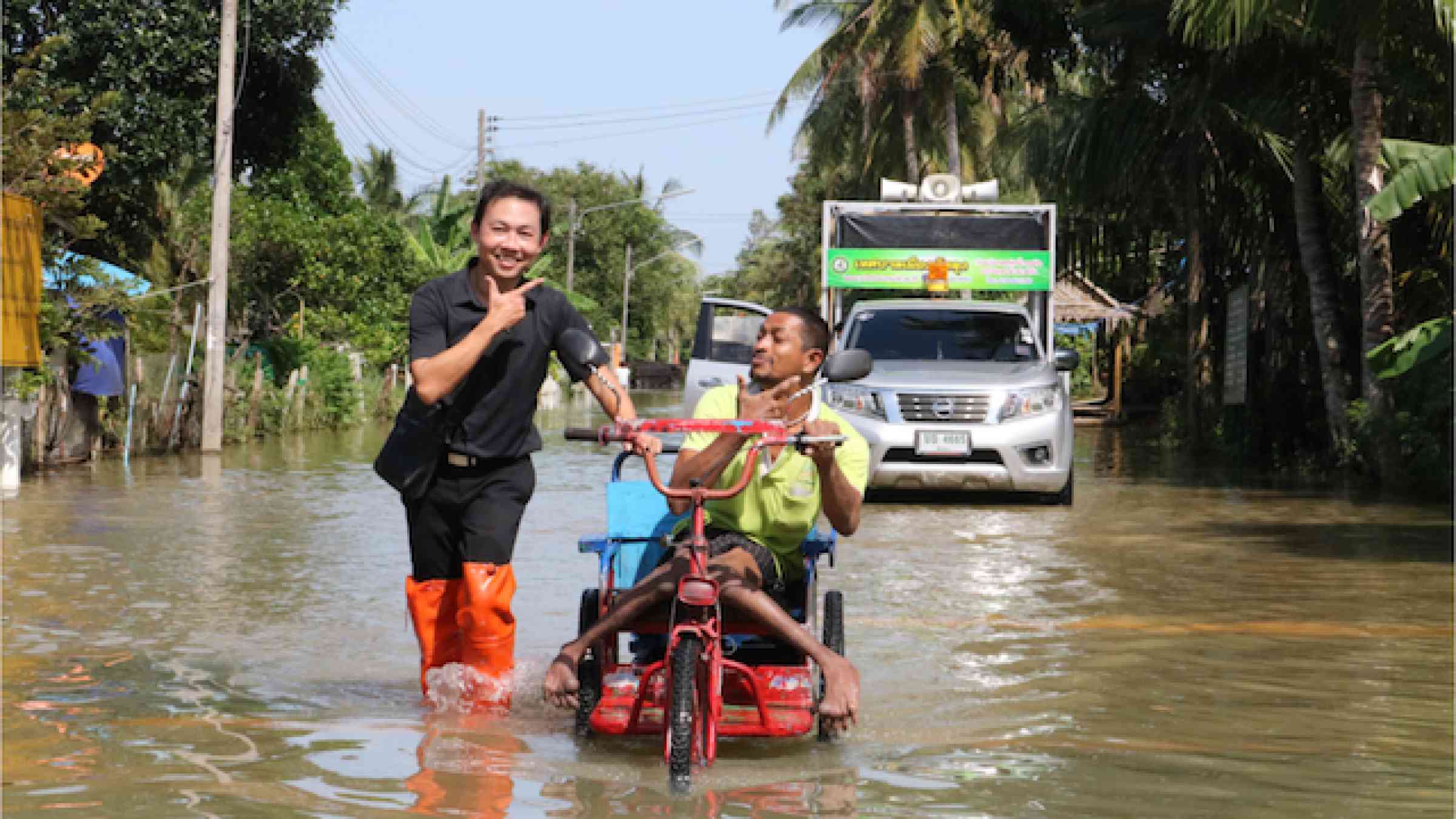Learning Labs: Adopting SFDRR and IASC and HIS (Disability Inclusive Global Standard and Guideline) into national curriculum on Disability Inclusive Disaster Risk Reduction
The curriculum is divided into 2 subjects. The first subject targets persons with disabilities and their carers for basic and practical DRR, while the second one targets other stakeholders (including persons with disabilities) for advanced training (Training of Trainers). That showcase the institutionalised learning of DiDRR through a government capacity building mechanism. The updated curriculum will be rolled out at the national to sub-national level (Lampung Province) by involving and targeting relevant government agencies, OPDs and other non-government organisations from March to May 2022. In addition to the rolls out under DiDRRN program, the updated curriculum will also be used for OPD capacity building training in Magelang. The rollouts are part of “Road to GPDRR”. One training that Pusdiklat BNPB sponsors will be conducted in Bali targeting persons with disabilities, just before GPDRR week.
Worth noting that a global curriculum with a similar theme is being developed, led by the International Disability Alliance (IDA) under the same program as that of the national level (DiDRRN program).
Those initiatives will be shared through a learning lab in GPDRR 2022. This activity is carried out together with multi-stakeholders as a sharing of knowledge and good practices at local, national, and global levels. As a further development and dissemination of instruments, such as standards, operational guidance codes, and other instruments, an example is the review of the Curriculum on Disability Inclusive DRR. This session will be an exchange of knowledge to inspire in developing more accessible, inclusive, and adaptable forms of learning for persons with disabilities and other stakeholders at the local to global levels.
Interested participants are invited to register for the Learning Labs as soon as possible through this link.
Session objectives
- To share lessons learned and good practices of adaptation of global commitment, standards, and guidelines pertaining to DiDRR (SFDRR, IASC Guideline and HIS) as well as existing national policies into institutionalised learning at the national and sub-national levels.
- To share lessons learned and good practices on inclusive training settings considering various aspects such as the needs and barriers of participants to fully participate concerning accessibility and reasonable accommodation and inclusive training materials, methods, and tools.
- To share information and build networks on innovations or learning guides that can be adapted for capacity-building processes and adopted from global to local levels inclusive of persons with disabilities.
Speakers
- Head of Pusdiklat BNPB
- Representative of OPD
- Representative of NGOs (ASB/DiDRRN)
- Trained Facilitator
Learn more
Participants may benefit from bringing their own laptop (but not essential)
Where do we stand
The GPDRR 2022 “Fostering Collaboration towards Sustainable Resilience” theme strongly reflects the all-of-society approach in supporting the advancement of the SFDRR and SDGs agendas towards resilient communities. That said, direct participation of all populations, including those at disproportionate risks, such as persons with disabilities, is imperative to a resilient building.
BNPB has recognised the importance of active and meaningful participation of persons with disabilities in DRR by launching Curriculum on Disability Inclusive DRR in 2014 to increase the DRR capacities of persons with disabilities and other stakeholders. In the following years, the global stakeholders have fostered disability inclusion in DRR and humanitarian response that reflect in SFDRR and specific commitments and policies at national and global levels. Two of those are the Inter-Agency Standing Committee Guideline on Inclusion of Persons with Disabilities in Humanitarian Action (IASC Guideline) and The Humanitarian Inclusion Standard for Older People and People with Disabilities (HIS). In the spirit of the all-of-society approach, Pusdiklat BNPB, in collaboration with ASB (under the DiDRRN program), brought together stakeholders from the Organisation of Persons with Disabilities and other non-government organisations to review and update that existing curriculum by adopting those global commitments and guidelines as well as current national policies.

Agenda
Location
BNDCC 2- Mezzanine Floor
Online access
Details
Contact
Berton Suar Pelita Panjaitan, [email protected] Agnes Patongloan [email protected]